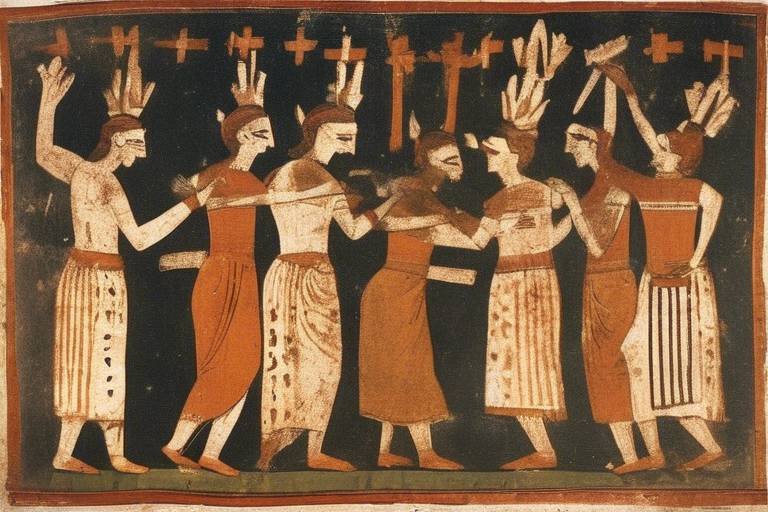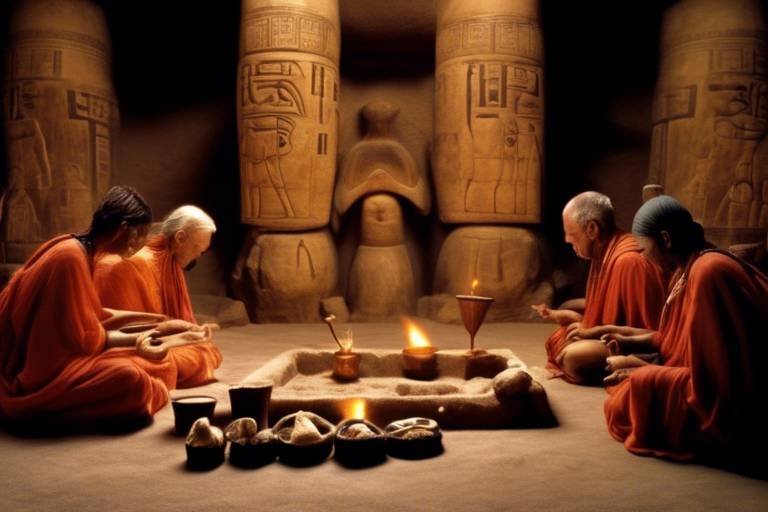The Cult of Dionysus - Wine, Ecstasy, and Worship
The Cult of Dionysus, centered around the ancient Greek deity of wine, ecstasy, and worship, holds a unique and captivating place in Greek mythology and religious practices. Dionysus, also known as Bacchus in Roman mythology, embodies the spirit of revelry, fertility, and liberation, making him a figure of both celebration and mystery in the ancient world.
As we delve into the origins of Dionysus, we uncover a rich tapestry of myths and legends surrounding his parentage and divine lineage. Born of Zeus and the mortal Semele, Dionysus represents the merging of the divine and the earthly, symbolizing the interconnectedness of the spiritual and material realms.
One of the most prominent symbols associated with Dionysus is wine, which plays a central role in the rituals and worship practices dedicated to the deity. Wine, with its intoxicating properties, serves as a conduit for inducing ecstasy and spiritual communion, allowing worshippers to transcend the boundaries of the mundane world.
The cult of Dionysus is characterized by a series of vibrant rituals, festivals, and celebrations that honor the deity and his teachings. The Dionysia, a festival held in Athens in honor of Dionysus, and the Bacchanalia, a Roman festival dedicated to Bacchus, showcase the fervent devotion and exuberant revelry that defined Dionysian worship.
Central to the worship of Dionysus is the concept of ecstasy, a state of heightened consciousness and spiritual connection achieved through music, dance, and intoxication. Followers of Dionysus sought to experience trance states that allowed them to commune with the divine and transcend the limitations of the physical world.
Gender played a significant role in Dionysian worship, with women often taking on prominent roles in Bacchic rituals and ceremonies. The cult of Dionysus challenged traditional gender norms, offering a space for the expression of female power, sensuality, and liberation within the confines of ancient Greek society.
The artistic representation of Dionysus in ancient art and literature reflects the deity's multifaceted nature and influence on Greek culture. Artists and writers depicted Dionysus in various forms, capturing his essence as a god of wine, fertility, and revelry, shaping the cultural perception of the deity for generations to come.
The legacy of the Dionysian mysteries endures in Western culture, influencing philosophical thought, literary works, and the exploration of ecstasy as a transcendent experience. The teachings of Dionysus continue to inspire seekers of spiritual enlightenment and liberation, resonating with those who seek to break free from societal constraints and embrace the divine within.
In modern times, the cult of Dionysus has experienced a revival of interest, with contemporary interpretations exploring the themes of wine, ecstasy, and liberation in the context of modern society. The allure of Dionysus persists, offering a glimpse into the timeless pursuit of transcendence and the celebration of life's pleasures.
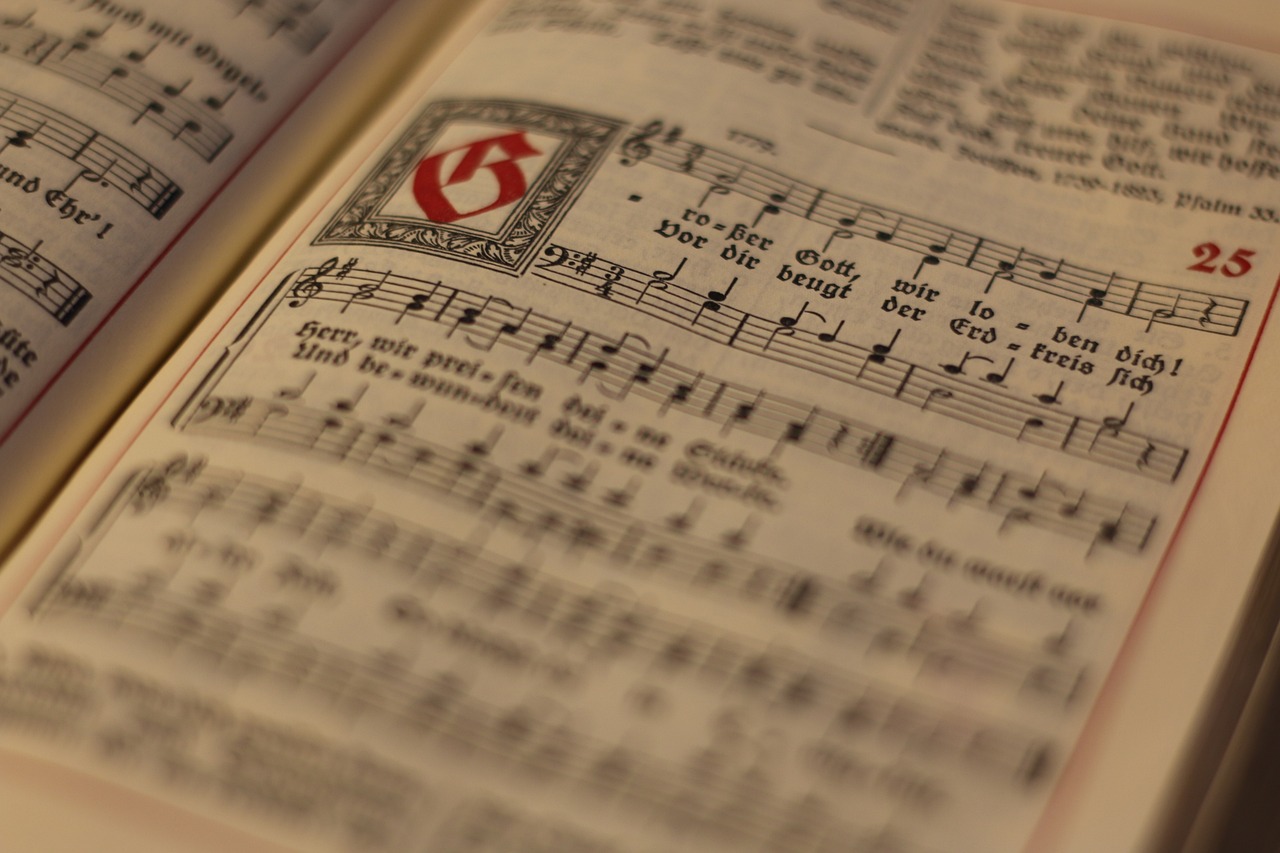
Origins of Dionysus
The origins of Dionysus, the enigmatic Greek god of wine and ecstasy, are shrouded in myth and mystery. According to ancient tales, Dionysus was born from the union of Zeus, the king of the gods, and Semele, a mortal woman. This unique parentage granted Dionysus a dual nature, embodying both the divine and the earthly realms.
As a figure in Greek mythology, Dionysus evolved over time, becoming associated not only with wine and revelry but also with fertility and the cycle of life and death. His connection to wine symbolized the transformative power of nature, as grapes undergo fermentation to create the intoxicating beverage that was central to his worship.
Legend has it that Dionysus traveled extensively, spreading the cultivation of the vine and the art of winemaking throughout the ancient world. This journey mirrored the cyclical nature of the seasons, with Dionysus representing the eternal cycle of growth, harvest, and renewal.

Symbolism of Wine in Worship
When delving into the symbolism of wine in worship within the context of the cult of Dionysus, one must first acknowledge the profound significance that this alcoholic beverage held in ancient Greek religious practices. Wine, with its intoxicating properties and rich cultural symbolism, played a central role in the rituals dedicated to Dionysus, the god of wine and ecstasy.
Wine was not merely a drink but a sacred elixir that symbolized the divine essence of Dionysus himself. In the worship of this enigmatic deity, wine was believed to embody the blood of the god, representing both the ecstasy of spiritual communion and the transformative power of liberation. Through the consumption of wine, worshippers sought to connect with the divine essence of Dionysus and experience a state of euphoria and transcendence.
The act of drinking wine in religious ceremonies was not merely a physical indulgence but a symbolic gesture of communion with the divine. As worshippers imbibed the sacred drink, they believed that they were participating in the divine essence of Dionysus, allowing themselves to be filled with his spirit and energy. This symbolic act of drinking wine was a ritual of transformation, a means of transcending the boundaries of the mundane world and entering into a heightened state of spiritual awareness.
In the cult of Dionysus, wine was also closely associated with fertility and abundance. The vine, from which wine was produced, was seen as a symbol of growth, renewal, and the cyclical nature of life. By partaking in the consumption of wine, worshippers celebrated the bountiful gifts of the earth and the regenerative power of nature, embodying the cyclical rhythms of birth, growth, and decay.
Furthermore, the intoxicating effects of wine were believed to facilitate a state of ecstatic trance, enabling worshippers to transcend their ordinary consciousness and enter into a heightened state of spiritual ecstasy. In this altered state of consciousness, individuals were believed to be more receptive to divine inspiration, visions, and revelations, deepening their connection to the divine realm and fostering a sense of unity with the cosmos.
Overall, the symbolism of wine in worship within the cult of Dionysus encapsulates a profound spiritual and cultural significance, representing not only the transformative power of the divine elixir but also the enduring legacy of ancient Greek religious practices centered around the celebration of wine, ecstasy, and spiritual liberation.

Rituals and Festivals
When delving into the world of the cult of Dionysus, one cannot ignore the rich tapestry of rituals and festivals that characterized the worship of this enigmatic deity. The ancient Greeks held a deep reverence for Dionysus, the god of wine, fertility, and ecstasy, and their religious practices reflected this devotion in vibrant and elaborate ways.
One of the most famous festivals dedicated to Dionysus was the Dionysia, a grand celebration held in Athens to honor the god of wine and revelry. During this festival, theatrical performances, music, and dance were performed in his honor, embodying the essence of Dionysian ecstasy and artistic expression.
Another notable event associated with the cult of Dionysus was the Bacchanalia, a wild and hedonistic ritual held in honor of the god. Participants engaged in frenzied dances, consumed copious amounts of wine, and surrendered themselves to the intoxicating power of Dionysus, experiencing a temporary release from the constraints of everyday life.
These rituals and festivals were not mere frivolous celebrations but served a deeper purpose in the religious life of ancient Greece. They were a means of communing with the divine, of tapping into the primal forces of nature, and of experiencing a profound sense of unity with the cosmos.
Through these rituals and festivals, the followers of Dionysus sought to transcend the boundaries of the mundane world and connect with the divine essence of the god of wine and ecstasy. The legacy of these ancient practices continues to resonate in modern society, reminding us of the enduring power of ritual, celebration, and spiritual communion.
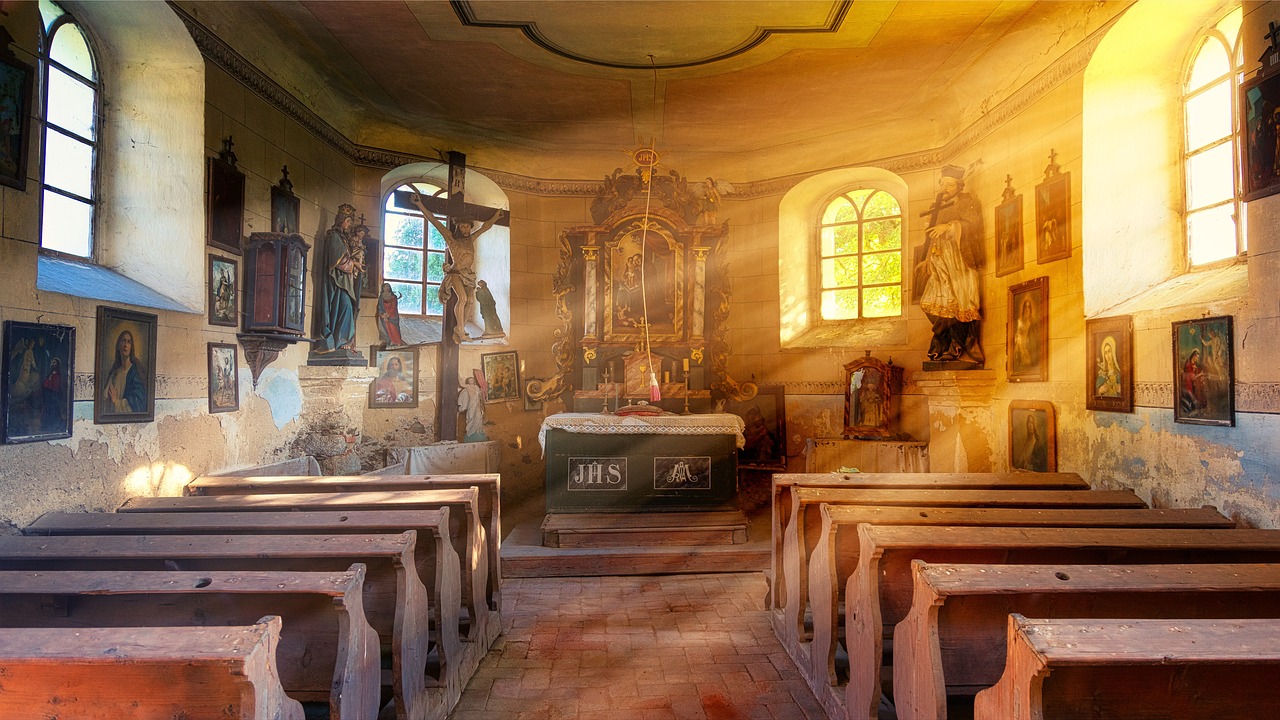
Ecstasy and Trance States
Exploring the ancient Greek deity Dionysus, his association with wine, ecstasy, and religious worship, and the cultural significance of his cult in Greek society.
The worship of Dionysus was deeply intertwined with the experience of ecstasy and altered states of consciousness. Followers of Dionysus believed that through rituals involving music, dance, and intoxication, they could achieve a heightened spiritual connection with the god.
During these ecstatic rituals, participants often entered trance states where they felt liberated from societal constraints and connected to the divine. The use of wine played a significant role in inducing these altered states, symbolizing both the intoxicating nature of Dionysian worship and the transcendence of ordinary reality.
Music, particularly the rhythmic beat of drums and the hypnotic melodies of flutes, was used to enhance the ecstatic experience, leading worshippers into a state of frenzy where they felt the presence of Dionysus in their midst. The combination of music, dance, and intoxication created a powerful sensory overload that transported participants beyond the boundaries of everyday consciousness.
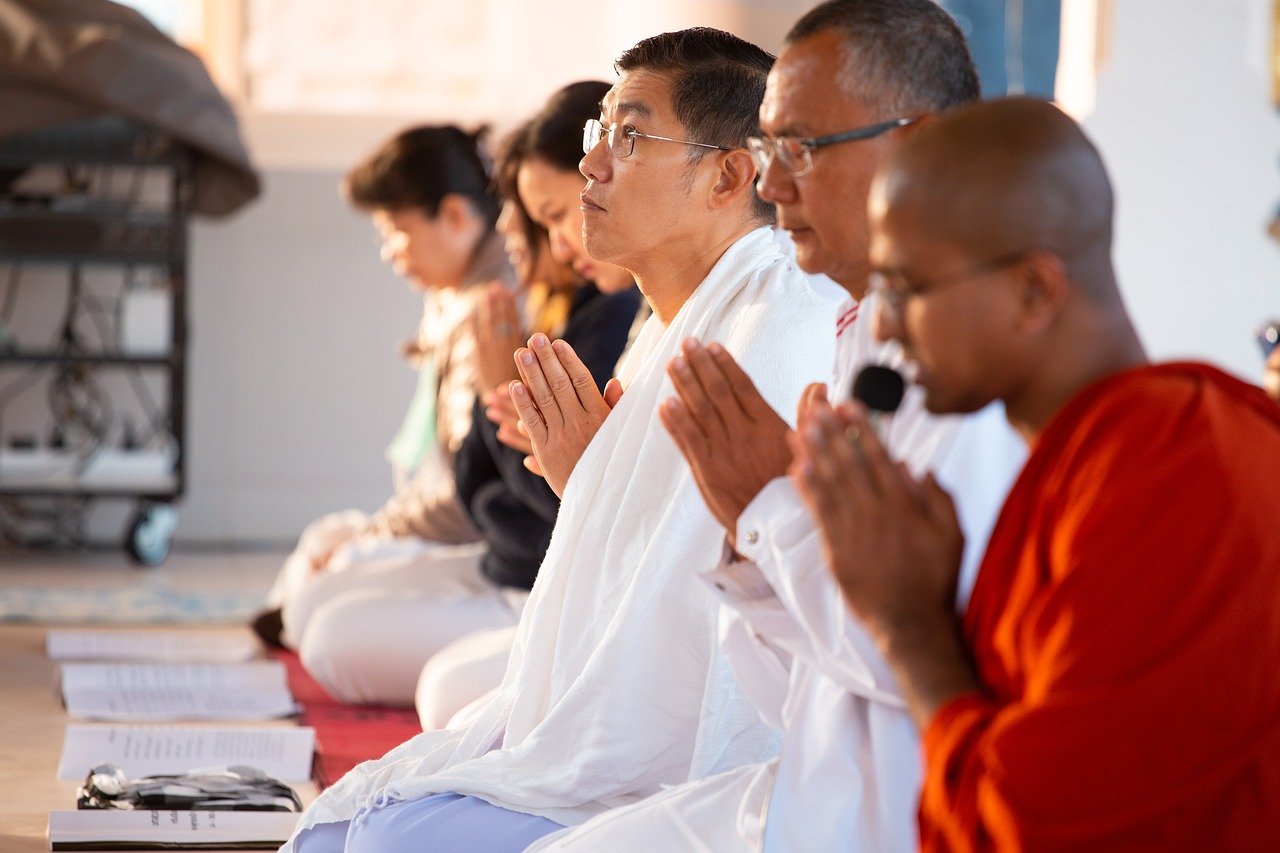
Gender and Dionysian Worship
Gender played a significant role in Dionysian worship, with the cult of Dionysus offering a unique space for the subversion of traditional gender norms in ancient Greek society. Unlike many other religious practices of the time, the cult of Dionysus allowed women to participate actively in rituals and celebrations, often in ways that challenged societal expectations. Women, known as Bacchae or Maenads, were central figures in the worship of Dionysus, engaging in ecstatic rites that involved music, dance, and intoxication.
These Bacchic rituals were characterized by a sense of freedom and liberation, where participants, regardless of gender, could experience a temporary release from the constraints of everyday life. The worship of Dionysus celebrated the primal and untamed aspects of human nature, embracing emotions and behaviors that were often repressed in conventional society. In this way, the cult of Dionysus offered a space where individuals could explore and express their identities beyond the boundaries of gender norms.
Furthermore, the figure of Dionysus himself embodied elements of both masculine and feminine characteristics, blurring the lines between traditional gender roles. As the god of wine, ecstasy, and fertility, Dionysus represented a union of opposites, symbolizing the duality and fluidity of gender identities. His worship encouraged followers to embrace all aspects of themselves, transcending societal expectations and embracing the full spectrum of human experience.
Through the participation of women in Dionysian rituals and the fluidity of gender roles within the cult, the worship of Dionysus challenged established norms and offered a space for individuals to explore their identities freely. The acceptance of diverse expressions of gender and the celebration of ecstatic experiences in Dionysian worship continue to resonate with modern interpretations of gender and sexuality, highlighting the enduring relevance of the cult of Dionysus in contemporary society.
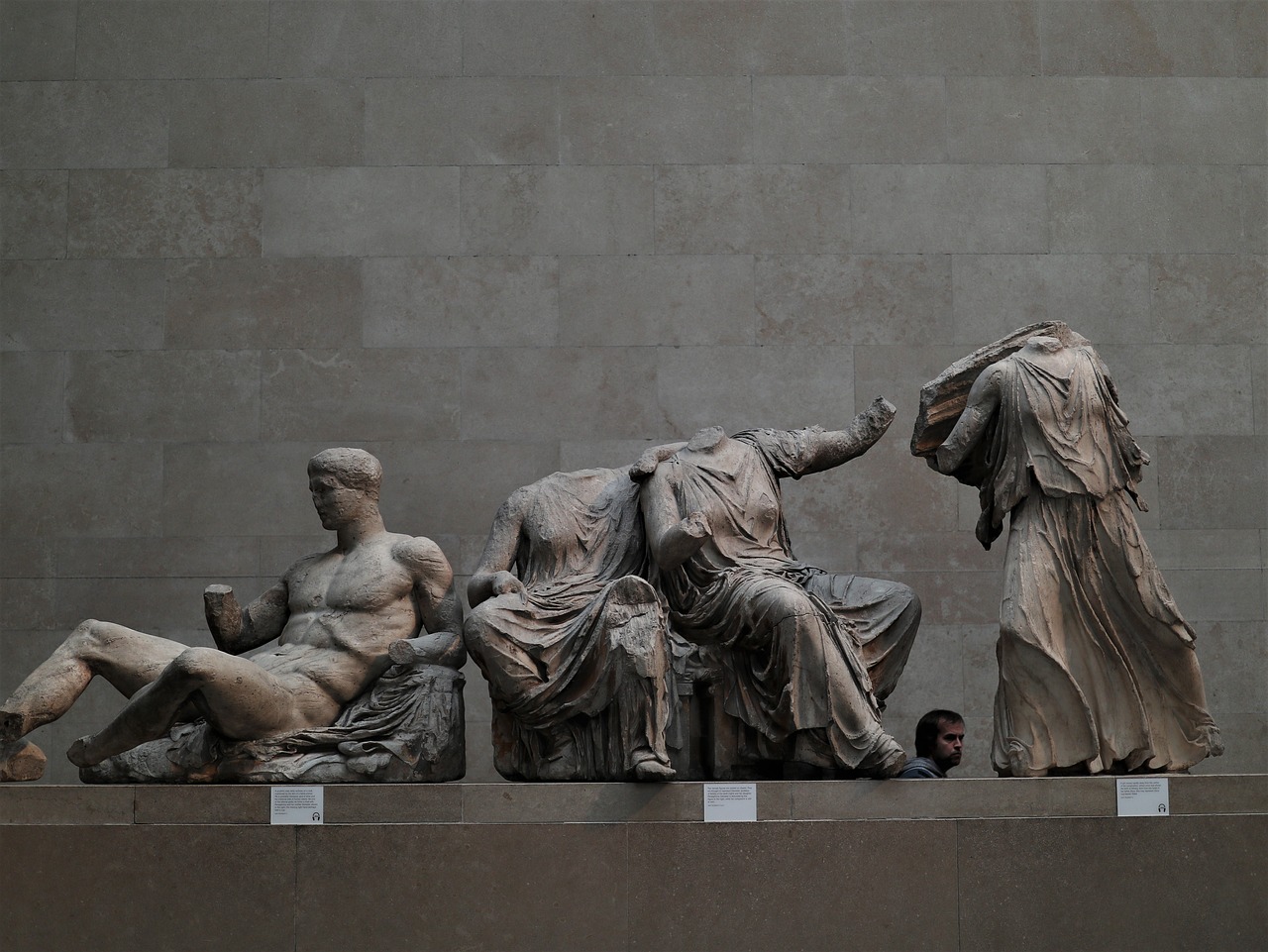
Art and Representation
Art and representation play a crucial role in depicting the essence of Dionysus in ancient Greek culture. Artists and writers of the time interpreted the deity in various forms, capturing his significance in art and literature. Dionysus was often portrayed as a youthful figure, adorned with grapevines and accompanied by satyrs and maenads, reflecting his association with wine, ecstasy, and revelry. The representations of Dionysus in sculpture, pottery, and poetry showcased his dual nature as both a god of fertility and a bringer of madness.
One of the most famous depictions of Dionysus is the statue of Dionysus of the Vatican, a marble sculpture believed to be a Roman copy of a Greek original. This statue captures the god in a moment of contemplation, holding a cup of wine and exuding a sense of serene power. The Dionysus of the Vatican symbolizes the blend of divine grace and earthly pleasures associated with the deity, embodying the essence of his cult.
Ancient Greek literature also delved into the character of Dionysus, portraying him in various myths and stories that highlighted his role as a god of wine and ecstasy. The playwrights of the time, such as Euripides, often incorporated Dionysian themes into their works, exploring the tension between rationality and irrationality, order and chaos. The Bacchae, one of Euripides' famous plays, delves into the destructive power of Dionysus and the consequences of denying the god's influence.
Furthermore, the representation of Dionysus in art and literature served not only as a means of honoring the deity but also as a reflection of Greek society's values and beliefs. The cult of Dionysus, with its emphasis on liberation, ecstasy, and the blurring of boundaries, challenged traditional norms and paved the way for new forms of artistic expression and cultural exploration.

Legacy of Dionysian Mysteries
The legacy of Dionysian mysteries holds a profound influence on Western culture, transcending the boundaries of time and leaving an indelible mark on various aspects of human expression. The enigmatic rituals and beliefs associated with the cult of Dionysus have sparked philosophical contemplation, artistic inspiration, and literary exploration throughout history.
One of the most enduring legacies of the Dionysian mysteries lies in their impact on philosophical thought. The concept of ecstasy, as experienced in the worship of Dionysus, has fascinated thinkers and scholars, leading to contemplation on the nature of altered states of consciousness and spiritual transcendence. Philosophers such as Friedrich Nietzsche drew upon the Dionysian ethos to explore the duality of human nature and the pursuit of ecstatic experiences.
Furthermore, the Dionysian mysteries have left an indelible mark on literature, inspiring poets, playwrights, and novelists to delve into themes of ecstasy, liberation, and the primal aspects of human existence. The works of authors like William Shakespeare, who often explored the darker, more chaotic aspects of human nature, bear traces of Dionysian influence in their portrayal of characters driven by passion and excess.
In addition to philosophy and literature, the legacy of the Dionysian mysteries can be seen in the enduring fascination with the concept of ecstasy in religious experience. The ecstatic rituals dedicated to Dionysus have served as a template for understanding the transformative power of spiritual connection and the pursuit of divine ecstasy in various religious traditions.
Overall, the legacy of the Dionysian mysteries continues to resonate in contemporary culture, serving as a source of inspiration for artists, thinkers, and spiritual seekers alike. The enduring themes of wine, ecstasy, and liberation embodied by Dionysus persist in shaping our understanding of the human experience and the eternal quest for transcendence.
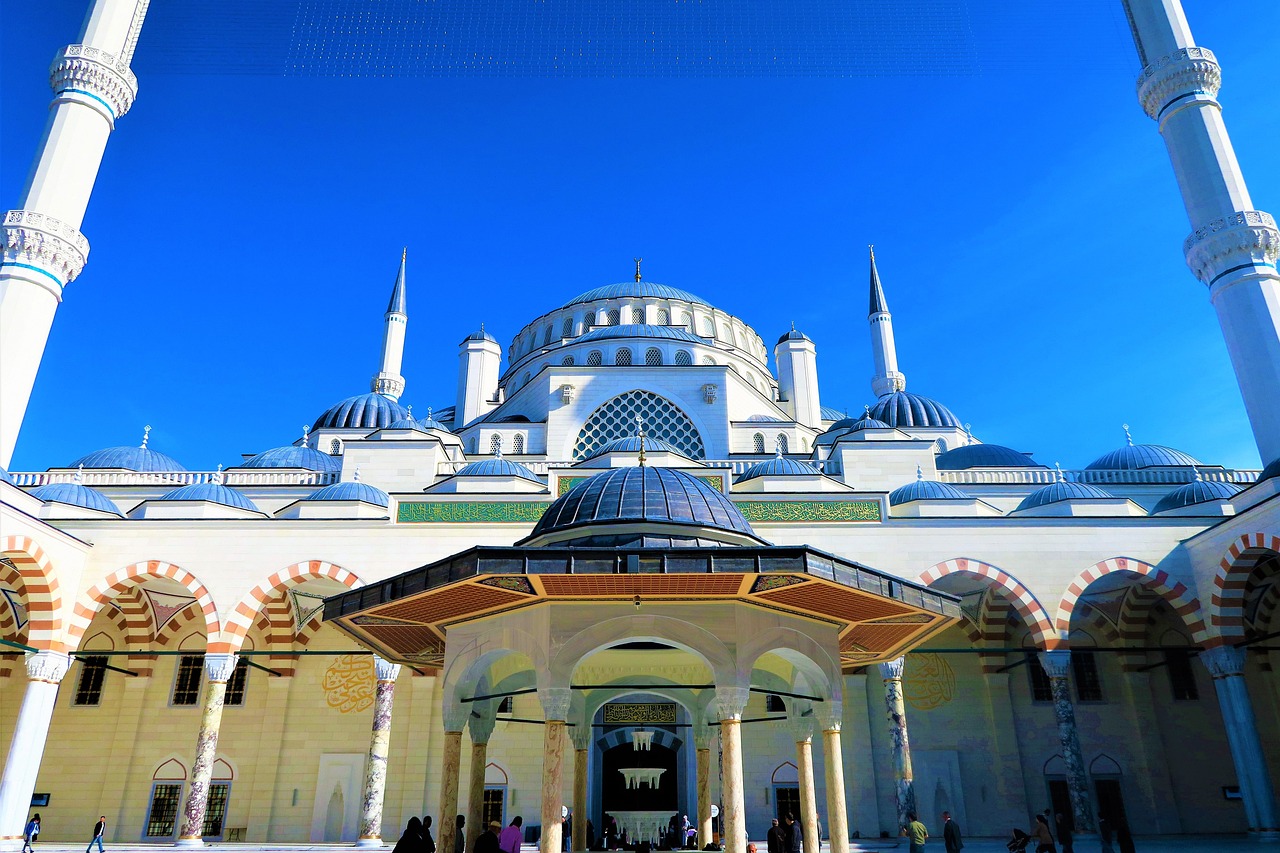
Modern Interpretations and Revival
In the modern era, the cult of Dionysus has experienced a fascinating revival, capturing the imagination of artists, scholars, and spiritual seekers alike. The timeless themes of wine, ecstasy, and liberation associated with Dionysus continue to resonate in contemporary society, offering a unique lens through which to explore the human experience.
One of the most intriguing aspects of the modern interpretation of Dionysus is the blending of ancient traditions with contemporary practices. From immersive theater experiences that seek to recreate the ecstatic rituals of the Bacchanalia to wine tasting events that celebrate the divine spirit of Dionysus, there is a growing interest in reviving the ancient worship of this enigmatic deity.
Furthermore, the concept of ecstasy and altered states of consciousness promoted by the cult of Dionysus has found new relevance in the fields of psychology and spirituality. The pursuit of transcendence and self-discovery, often associated with Dionysian worship, has inspired individuals to explore the boundaries of their own consciousness through meditation, dance, and other transformative practices.
Moreover, the subversive nature of Dionysian worship, which challenges traditional social norms and boundaries, continues to inspire movements of liberation and empowerment. The inclusive and egalitarian spirit of the cult, which welcomed women and marginalized individuals into its fold, serves as a powerful symbol of resistance against oppressive structures in modern society.
As we delve deeper into the legacy of Dionysus and his enduring influence on Western culture, it becomes clear that the cult of this ancient deity offers a rich tapestry of themes and symbols that continue to captivate and inspire us today. Whether through art, literature, or spiritual practice, the spirit of Dionysus lives on, inviting us to explore the realms of ecstasy, creativity, and transcendence in our own lives.
Frequently Asked Questions
- What were the Dionysian mysteries?
The Dionysian mysteries were secretive religious rites and rituals dedicated to the worship of Dionysus, involving ecstatic celebrations, music, dance, and the consumption of wine to induce spiritual experiences and altered states of consciousness.
- How did Dionysus influence Greek culture?
Dionysus, as the god of wine, ecstasy, and fertility, had a significant impact on Greek culture, inspiring artistic representations, festivals, and philosophical reflections on the nature of ecstasy and liberation. His cult challenged traditional gender roles and societal norms, promoting freedom and individual expression.
- What is the modern relevance of Dionysian themes?
In modern society, the themes of wine, ecstasy, and liberation associated with Dionysus continue to resonate, inspiring artistic expressions, philosophical inquiries, and cultural movements that embrace the pursuit of joy, spontaneity, and emotional release. The revival of interest in Dionysian worship reflects a longing for connection, transcendence, and the celebration of life's pleasures.
















